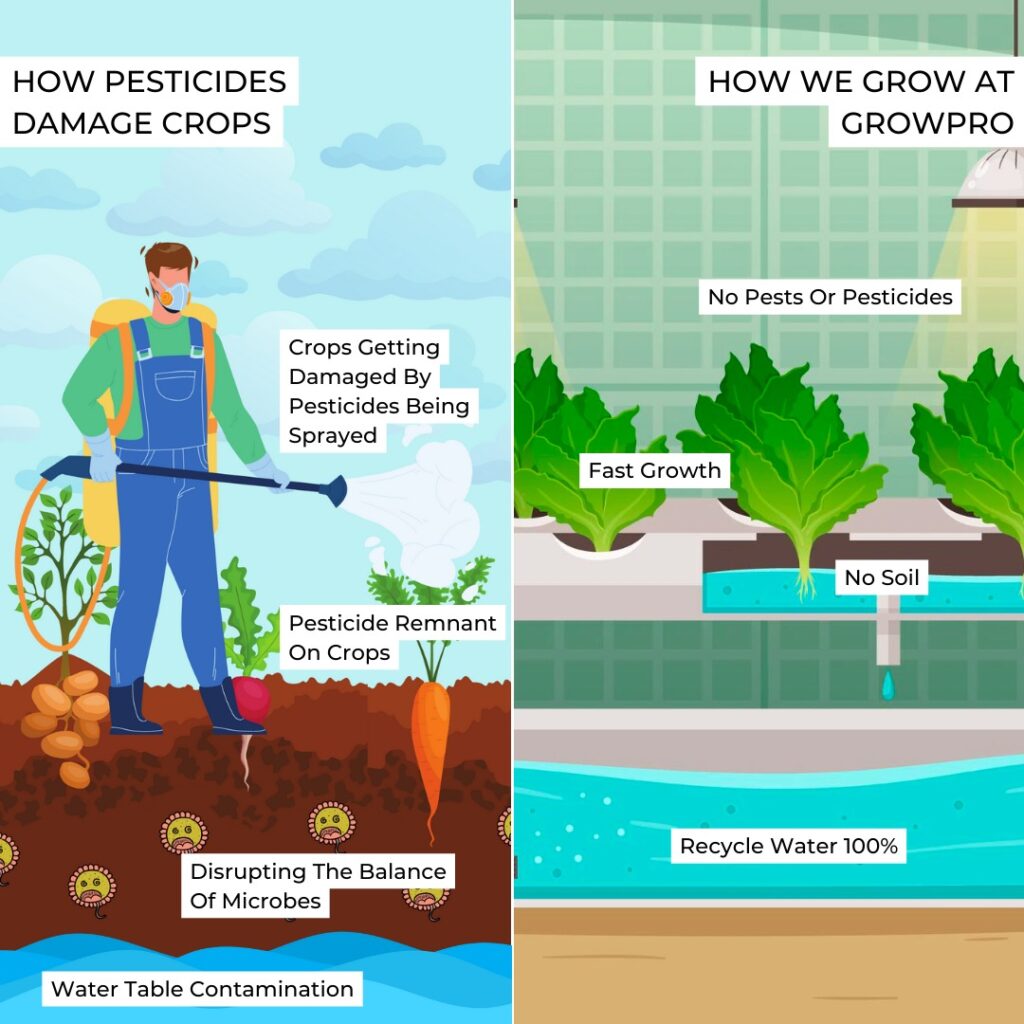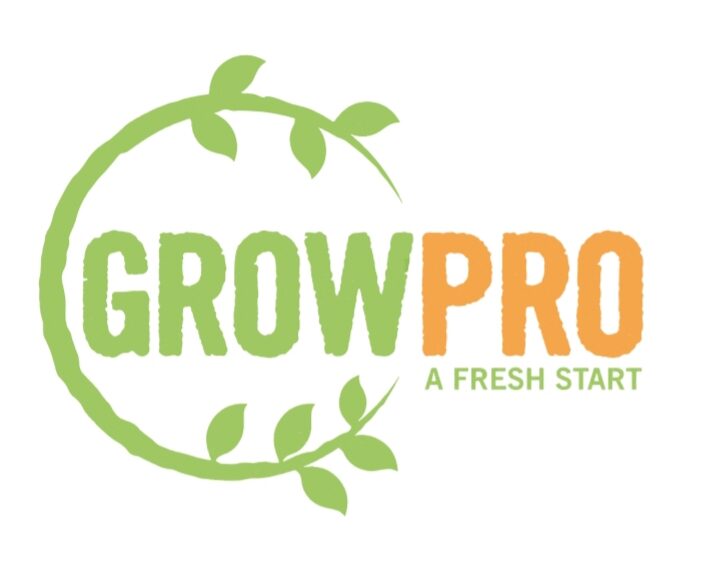Often people mistake hydroponic vegetables to be organic; this is not necessarily true. For vegetables to be considered organic, the fertilizers and pesticides used have to be in an organic form (like compost, cow manure, worm castings, etc.). Hydroponically grown vegetables simply mean they are grown without soil, with the fertilizers added to the water. As we are growing without soil, we reduce the chances of pest attacks, as 80% of them typically originate from soil. Hence, we don’t need to spray any pesticides at all—organic or inorganic! The fertilizers used can either be organic or inorganic, determining if the vegetables can be considered organically grown or not.
What are the Problems with Inorganic Soil Cultivation?
Use of Chemical Fertilizers: Over the years, humans have abused the soil by polluting it, leading to a loss of fertility. Chemical fertilizers are typically added to the soil to offer nourishment and nutrients for the plants. These fertilizers are just a temporary fix; they do not restore soil health and can contaminate the water table, further polluting water. Chemical fertilizers have environmental effects.
Use of Chemical Pesticides: Soil is a breeding ground for insects, pests, rodents, etc. Vegetables grown in soil typically become a natural food source for these living organisms. Moreover, these vegetables become an easy target for birds and airborne insects. Farmers need to spray harmful chemical pesticides on the vegetables to protect them and safeguard their income, as organic forms of pesticides are not as effective. These chemical pesticides are poisonous and can lead to long-term health effects when consumed along with the residues on vegetables.
Due to the above-stated reasons, consumers have changed their eating habits, and farmers are trying to change their growing habits.
How We at GrowPro Solve the Problems of Inorganic Soil Cultivation
When growing vegetables in our hydroponic growers, we do not use any soil. Therefore, no matter the type of fertilizers used, we wouldn’t contaminate the soil or water table. Additionally, due to the absence of soil, we don’t need to spray any pesticides whatsoever, making the vegetables grown completely residue-free. Our growers are designed to grow vegetables in the smallest of spaces, even inside your house, eliminating bird attacks and reducing the chances of airborne pest infestation.
The majority of hydroponic growers do not use organic forms of nutrients, as it is challenging to control the exact quantity of each element fed to the plants. Hence, the idea of precision and optimized farming is rarely achieved with organic nutrients. While using inorganic nutrients, it is easier to feed the plant exactly what it requires in the correct proportion, making the output crop a lot more nutritious. Moreover, plant roots cannot directly consume nutrients in an organic form; they have to break it down into inorganic forms to consume them.
In conclusion, our hydroponically grown vegetables are not considered organic, though we consider them to be completely pesticide-free, residue-free, and more nutritious compared to those grown in soil (organic or inorganic).

